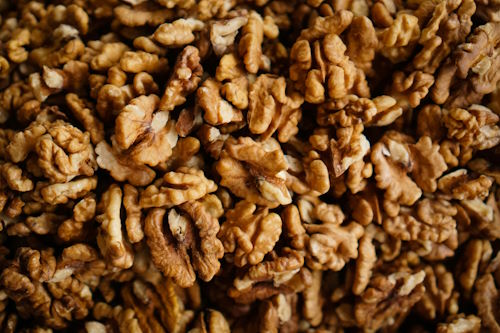A team at Harvard reinforced the power of one crunchy snack that's long been lauded for its heart-healthy benefits. Here's how much of it made the difference.
As ultra-processed foods are increasingly discouraged by scientists and health experts, many Americans are consciously cutting back on industrially altered ingredients. This may mean that some of your favorite go-to snacks no longer make it to your grocery cart.
BREAKING: 1 Simple Remedy To Remove Nail Fungus - Try Tonight
The good news? One all natural option is winning accolades yet again: Health researchers at Harvard University’s TH Chan School of Public Health have found that if you eat a handful of nuts often enough, it could improve your heart health.
According to a study published in the Journal of the American College of Cardiology, people who ate nuts five times per week saw significant cardiovascular gains.
The study analyzed data that was collected from more than 210,000 Americans—specifically, nurses and other health professionals—to compare the heart health effects of eating nuts at various frequencies. The sample of participants fell within 25 to 55 years of age when their health details were first reported, and were free of heart disease, stroke, and cancer issues.
Over a 32-year study period, the researchers determined that, compared with those who never or almost never ate nuts, individuals who ate nuts five times per week or more experienced an average 14% lower risk of cardiovascular disease (CVD) and a 20% lower risk of coronary heart disease (CHD).
Specifically, these individuals had reported eating one ounce of three particular types of nuts:
- walnuts (which reduced cardiovascular disease incidence up to 19% while consuming at least one serving per week)
- peanuts
- tree nuts
Peanuts and tree nuts showed benefit when they were consumed twice per week, or more often.
The findings were backed up by a related study
A 2019 study that was published in the American Heart Association (AHA) journal Circulation Research found similar results when narrowing their subject pool only to individuals living with Type 2 diabetes. That study used some of the same source data as the previous study, taken from the Nurses’ Health Study. Researchers concluded that higher total nut consumption was associated with a lower risk of cardiovascular incidence and mortality, and that those who ate nuts five times per week or more saw the greatest benefits.
That study also specified it was tree nuts that showed the greatest benefit: Almonds, brazil nuts, cashews, hazelnuts, macadamia nuts, pecans, pistachios, and walnuts. Additionally, they found “peanut consumption was associated with lower all-cause mortality.”
The AHA study made another encouraging discovery: Being diagnosed with chronic illness didn’t mean it was too late. Participants who ate nuts more frequently after being diagnosed with diabetes had an 11% lower risk of cardiovascular disease, a 15% lower coronary heart disease risk, a 25% lower cardiovascular disease mortality, and a 27% lower all-cause mortality.
This could mean that if you don’t currently eat nuts as part of your regular diet, there’s still time to reap the benefits.
TRENDING: 72-Year Old Grandma's Anti-Aging Discovery Sweeps The Nation
Why nuts are so healthy
So why do these small gifts from nature yield such powerful effects for our health? The researchers explain that nuts are rich in unsaturated fatty acids, plant proteins, fiber, minerals, vitamins, and phytochemicals. These nutrients can help improve “lipid profiles, insulin resistance, oxidative stress, inflammation, and vascular reactivity,” they note.
One important point is not to go overboard. Stick to the serving sizes the researchers mentioned—even though nuts are a “healthy fat,” they’re still a fat. Staying trim tends to be another of the best ways to protect your heart.








